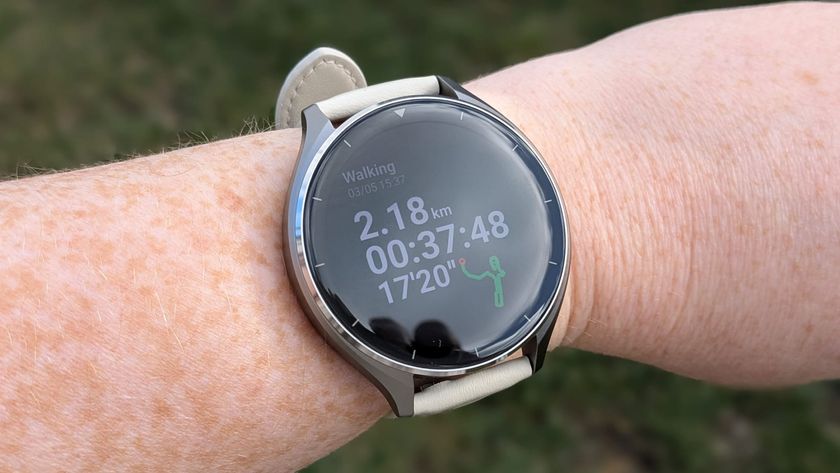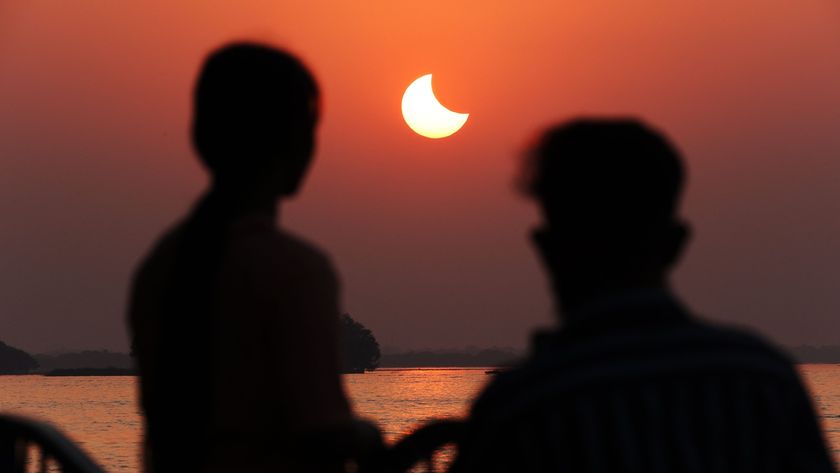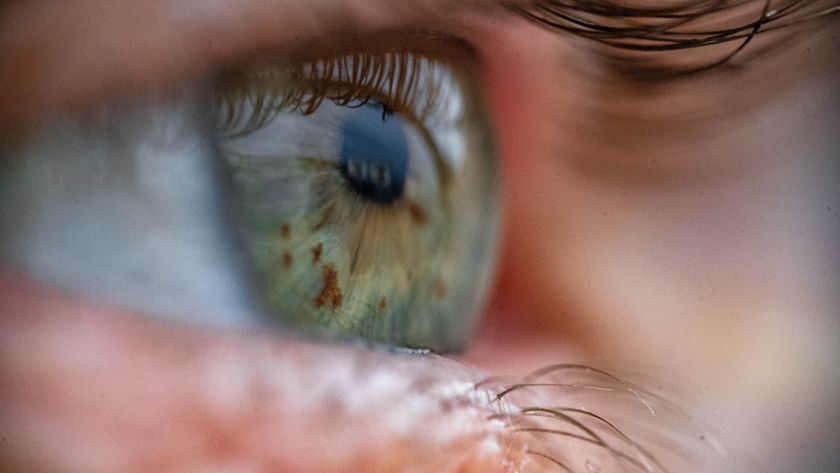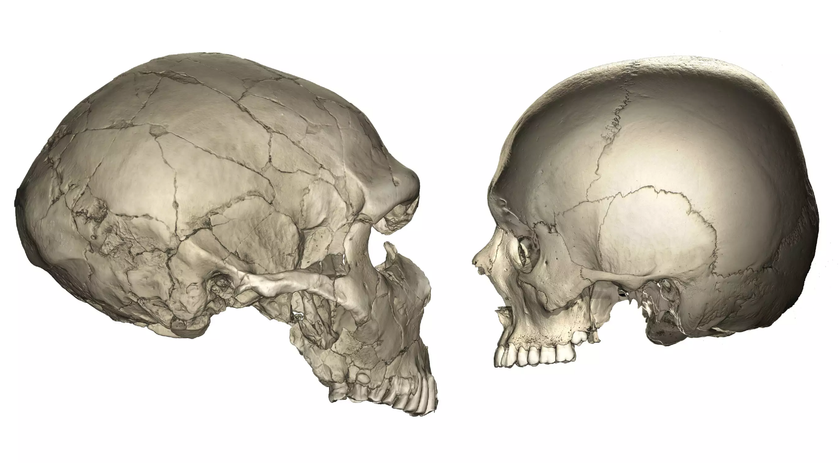
A Quarter of Americans Think the Sun Orbits the Earth ... Sigh (Op-Ed)

Jeff Nesbit was the director of public affairs for two prominent federal science agencies. This article was adapted from one that first appeared in U.S. News & World Report. Nesbit contributed the article to Live Science's Expert Voices: Op-Ed & Insights.
The Earth revolves around the sun. Really, it does. I know it may not seem that way because the sun appears to move across the sky each and every day, from east to west. It disappears into the ocean, and then rises again in the east the next day. But we're the ones doing the moving in orbit around the sun — not the other way around.
If you believe that (or, more accurately, know that), then good for you — you got one of the 10 correct answers on the National Science Foundation's public science-literacy test released recently.
When I worked at NSF, I used to think this sort of basic science test survey was a bit silly and simplistic. People spend years in school learning basic science stuff. Who doesn't know the Earth orbits the sun and not the other way around? [Test Your Science Smarts: 9 Questions (and Answers)]
Apparently a quarter of the American population, that's who.
It turns out 26 percent of us in America think the sun is moving around the Earth, and we're just rooted in place here on Earth watching it sweep across the sky, a recent public survey using the NSF science-literacy test found. Never mind those silly scientists telling us otherwise. A quarter of us can see the sun moving. We're not moving. The sun is.
Gravity isn't holding us down on the Earth as we spin through space. Come on! It doesn't feel like we're moving. Sure, maybe when there's an earthquake, or a Category 5 hurricane throws stuff around. Then we can see that there are bigger forces at play all around us that we maybe don't totally comprehend. [6 Weird Facts About Gravity]
Sign up for the Live Science daily newsletter now
Get the world’s most fascinating discoveries delivered straight to your inbox.
Global warming can't be happening during the winter. There's snow outside! It's cold. Glenn Beck, Rush Limbaugh, that old guy on The Washington Post's editorial page who's written the same column for the last 30 years and that woman with the blonde hair on Fox News say this proves climate change isn't happening. Never mind that nearly all of the old ice that's been around for millions of years in the Arctic Ocean is just about gone. I can see the ice still there from satellite pictures. I can see the snow outside.
There were never dinosaurs on the earth millions of years ago. I can't see any of them around now. Those scientists who gather fossils for their jobs are just making stuff up. The other scientists who study how genetic traits in animals evolve, even in one generation from a mother to her offspring, are just fibbing. It isn't real. I can see with my own eyes that the animals all still look the same today. Evolution is a bunch of hooey.
There aren't, like, invisible waves that carry actual information or data through the air. I mean, come on! I can't see anything. OK, yeah, I can hear you talking on that thingamabob connected to my ear, and it doesn't seem to be attached to anything. I can see pictures moving on the TV and my laptop. But that doesn't prove anything, really.
Oh, by the way, for those of you who are feeling smug in your science literacy, let's throw this in for good measure. God doesn't exist. We can't see him, so there's no way he exists. You know? Right? [Proof of Jesus Christ: 7 Pieces of Evidence Debated]
What is so shocking about the recent NSF survey is how basic the science literacy questions are, the significant percentage of those questions more than 2,000 people surveyed nationally got wrong, and what that means for the public's ability to grasp the basic science, evidence and facts needed in a functioning democratic society. Those 2,000-plus people who took the NSF science literacy test are representative of the country as a whole — unless, of course, you don't believe in the science of statistical sampling and polling.
Less than half knew (or believed) that humans have evolved over time. Big percentages didn't know the center of the Earth is really hot; that the universe began with a huge explosion; or that continents shift over time. When asked whether it was a father's genes that determined whether a baby was a boy or girl, a whole lot of people got it wrong. (The correct answer is, yes, it is the father's genes.)
In fact, the average score was abysmal — just 6.5 out of 10. That's a failing grade for a basic science test that you'd expect most third graders in public schools to answer correctly. But these weren't third graders taking the NSF literacy test — they were adults. And they got a third of the questions wrong.
To be fair to the American public, the hardest question (does a father's genes determine the sex of a baby) is also answered wrong about half the time pretty much all over the world. Americans scored higher on this question, on average, than people in nearly every other country. Less than a third of the Japanese public got that answer right in 2011, for instance.
But that doesn't let us off the hook on all the other basic science stuff we should know cold. It's bad enough that a quarter of the American public doesn't know that the Earth revolves around the sun. But there was even more disturbing news in another part of that NSF survey (Science and Engineering Indicators) beyond the 10 basic science literacy questions.
About 45 percent of the public — including, it seems, pop star Katy Perry — think that astrology is a science. In fact, the percentage of the American public that believes astrology is a science (and, therefore, real or believable) has been increasing every year for the past 10 years. And it isn't just those who got hooked on horoscopes in daily newspapers. A majority of younger Americans (ages 18-24) think that astrology has some sort of scientific basis. Meanwhile, in China, 92 percent of its public doesn't believe that astrology is scientific.
Just to state the obvious — this doesn't bode well for America's future. A functioning democracy depends on at least a baseline understanding of science, evidence and facts for critical decision-making in policy and politics, so it's hard to see how this works when the public seems confused on even basic facts and is moving in the wrong direction.
As your daily horoscope might say — there's rough weather ahead.
Nesbit's most recent Op-Ed was "As Plant Virus Jumps to Bees, Does it Cause Colony Collapse?." This Op-Ed was adapted from "Science 101: The Earth Rotates the Sun," which first appeared in Nesbit's column At the Edge in U.S. News & World Report. The views expressed are those of the author and do not necessarily reflect the views of the publisher. This version of the article was originally published on Live Science.













